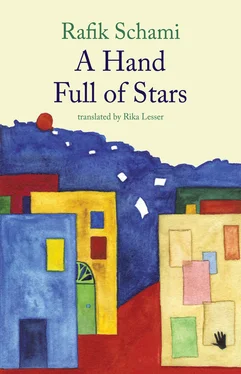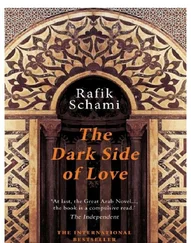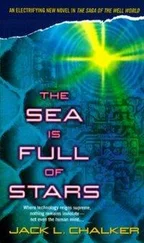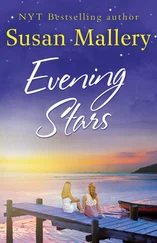The theater is new and gigantic, and the several hundred spectators learn by word of mouth which day the skin-flick will be shown. The day is supposedly kept a secret so the police won’t find out. But how, Mahmud asks me, does it happen the police don’t know when over six hundred people show up for movies in the midday heat? These same police officers know at once when five people meet for tea and warn them they’ve been under surveillance for weeks.
Today I went there with Mahmud for the first time. The troop of people streaming in looked like a protest march. There was no one at the box office and no advance notice, but each person just happened to have a ticket somehow or other.
It was a titillating film, showing nothing but European strip-tease joints. When the lights came on, I looked right into the eyes of my former math teacher. He turned red, and I felt my own ears get hot. He didn’t say hello, nor did I. Each of us gazed off in a different direction. Mahmud didn’t realize what was going on. When I told him once we got outside, he laughed at my inhibitions.
August 20 — “Ah! I’ve been waiting for you!” Habib greeted me today when I came with his bread. I wanted to leave, but he insisted that I have breakfast with him. I still had half an hour before my noon rounds, so I stayed.
“You did that well,” he said, grinning.
“What have I done well?” I asked, somewhat confused.
“The business with the Black Hand, you rogue!”
I must have seemed paralyzed, for he laughed and said, “Swallow that piece of bread so you don’t choke on it!” He pressed my arm. “You needn’t be afraid. I alone know. The idiots at the newspaper learned about it from the secret service. Of course we’re not allowed to write a word about it, but when I heard the name of our street, I was sure. The chief really believes it’s a gang, and is already scared shitless. Congratulations!”
“But you haven’t told Mariam anything,” I said, once I had caught my breath.
“Why do you ask about Mariam?” Habib asked, astonished.
“I know — but that dope of a husband of hers doesn’t,” I replied. We laughed like two conspirators. For the first time I felt a certain closeness to Habib. How long it sometimes takes to penetrate to the core of another human being!
“Do you really want to be a journalist? Actually, you already are one, but if you’d like to learn a few trifles, then. ”
“Yes!” I interrupted him, enthusiastic. “Please teach me!”
“Starting today, come every evening at six for an hour. I’d be very pleased to show you some things, Colleague!” he said. For the first time he embraced me as I left.
August 26 — “Today the six months are up!” Uncle Salim said. “Do you regret your decision?”
I had long since forgotten our agreement, but this friend never just talks off the top of his head. His promise is sacred to him.
“No, I’m glad I stayed,” I answered. In fact, I don’t regret it. Here I will become a journalist!
August 29 — Mr. Katib stopped by my father’s bakery today and gave him two copies of the book in which my poems appear. By the time I got there, he was already gone. My father beamed at me.
“There’s my young poet!” he cried. Two customers, an old woman and the tiler from next door, did not understand who he meant by poet or why my old man was so cheerful. He quickly pressed their loaves of bread into their hands and embraced me. Then he had two cups of tea brought to us.
“How much will you pay for some good news?” he asked, keeping me on tenterhooks.
“The poems. have. come out!” I exclaimed.
“What a miser!” my father replied, enjoying himself. “And I wanted to be the one to tell you! All right, here they are.” He took two copies out of the closet. My heart was beating so hard I could scarcely breathe. Weak-kneed, I sat down on a stool and looked at the books.
The cover bore the title The Flying Tree: Poems by Young People. I could not believe my eyes. The publisher had named the entire volume after my poem! The book is so incredibly beautiful! The title page is a watercolor in which a blue moon gazes toward a flying tree, whose leaves look like swallows and stars. My hand glided over the pages, and I searched for my name both in the table of contents and inside the book.
In his foreword the publisher tells about my meeting with him. He writes of having had financial difficulties with the book, but after talking to me — he even mentions my name — he was convinced that the book should be done, cost what it may. What a day! I took the book with me on my noon rounds. After every two customers, I sat down somewhere and read and read; I couldn’t get enough. The poems of the other young people are also great!
Habib wasn’t home. Mariam wanted the book, but I told her she would have to buy her own copy because one of my copies was for Habib and the other for myself, my parents, and Mahmud.
I practically flew home, and when I reached Nadia’s door, I knocked, without even thinking of the danger or her brothers. Her mother came out smiling and looked at me in astonishment.
“My poems have appeared. I want to show them to Nadia!”
Nadia immediately came running. “We’re in luck; those two aren’t here!” she said breathlessly. “Beautiful! How very beautiful!” she whispered and, with the most loving hand on earth, stroked the moon in the book and then my face. I pushed her into the dark corridor and kissed her lips.
“So that’s why you wanted to write poems,” she teased me, laughing.
I ran home like a maniac. My mother thought I had gone nuts. I sang louder than ever — I know I sing like a rusty watering can; that’s why I normally spare myself and others — but today I sang wildly and in languages I don’t know, and my mother laughed and asked if a snake had bitten me. I told her I had to vent these shrieks because I’d been carrying them around inside me not just all day but for months. Exultant, I grabbed her by her waist and whirled her around.
Once I had calmed down a bit, I told her, “Mr. Katib said he would read my poems aloud in class so the other students will think of me. And he’ll do this every year, so they won’t forget me!”
My mother began to bawl. “Mr. Katib is such a splendid person. We are very poor, but the Blessed Virgin Mary will hear me and guard your life. She always hears the prayers of mothers.”
I begged her to stop going on about the Virgin Mary. We ought to be celebrating, not crying. I went and got twenty pounds and gave them to her. She was to buy two kilos of coffee and one kilo of tea.
“And what about me?” Leila piped up, as if the neighbors alone were going to drink the tea. Fine, I gave her a pound, and in the course of the late afternoon she bought a sundae, nuts, chewing gum, and cotton candy; afterward she felt sick to her stomach. My mother made her some strong anise tea. Leila suspected that things had gone so badly because I did not give her the pound with my whole heart. Can she ever tell tales! p.s.: At six o’clock I went to Habib’s. He wasn’t half surprised about the book I gave him. “You really are a character,” he said and for an hour explained how a newspaper article is put together.
Sunday — Uncle Salim had dinner with us today. It was delightful. My father praised the good tea I had provided.
September 1 — My parents are showing the book to everyone. Habib tirelessly instructs me about newspaper work and shows me how to write an engrossing article. He himself, however, is desperately unhappy about his work. He will help me get out of the bakery. A friend of his has a bookstore in the New City. My father is doing well; we no longer have any debts. The bakery brings in enough to live on.
Читать дальше












